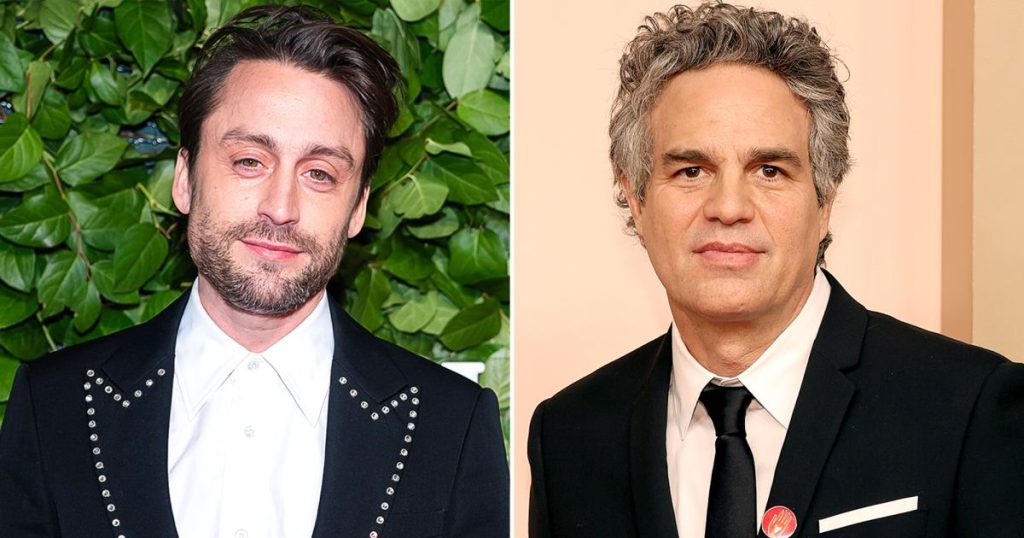A Prank, a Joint, and Unexpectedly Positive Reviews: The Story of Kieran Culkin, Mark Ruffalo, and a Haze-Filled Broadway Performance
The entertainment industry is replete with anecdotes of on-set and backstage antics, but few are as amusingly hazy as the tale of Kieran Culkin inadvertently getting his co-star Mark Ruffalo high during a Broadway performance. This incident, which took place over two decades ago during a production of "The Moment When," has recently resurfaced with Culkin finally confessing to his youthful indiscretion. The story, as recounted by both actors, paints a picture of a naive prank gone surprisingly right, leaving a trail of laughter, unexpected highs, and ultimately, glowing reviews.
In the year 2000, a 17-year-old Kieran Culkin, making his Broadway debut, found himself amidst the backstage bustle of "The Moment When." Amongst the various props, his eye caught a bag of what appeared to be joints. Perhaps driven by youthful impulsivity or a misguided sense of humor, Culkin decided to swap one of the prop joints with a real one. Weeks passed, and the incident faded from his mind until the fateful performance. The distinct aroma of burning marijuana wafted through the air, and Culkin watched in a mixture of amusement and dawning horror as Ruffalo took a drag and passed the joint to another cast member. The reality of his prank, and its potential consequences, crashed down on him.
During intermission, a guilt-ridden Culkin confessed to Ruffalo and the rest of the cast. To his surprise, his confession was met not with anger but with laughter and an unexpected embrace of the unintended high. Ruffalo, who hadn’t smoked marijuana in a decade, found the experience rather enjoyable, anticipating a more relaxed and entertaining second half of the performance. Another cast member, who had never partaken in the substance before, found herself pleasantly surprised by the sensation. Even veteran actress Phyllis Newman joined the impromptu celebration, thanking Culkin for inadvertently providing her with a nostalgic trip back to the 1960s. The atmosphere backstage was one of unexpected camaraderie, fueled by the shared, albeit unplanned, experience.
However, not everyone shared in the amused reaction of the cast. The stage manager, maintaining a professional demeanor, quickly put an end to the festivities, demanding the joint from a sheepish Culkin. While the actors had embraced the unexpected turn of events, the stage manager’s stern response served as a reminder of the potential ramifications of Culkin’s actions. Her words, "Ruin your life on your own time," served as a poignant, albeit slightly harsh, lesson for the young actor. Culkin, now older and wiser, acknowledges the folly of his youthful prank and assures that such an incident would never happen again.
The story, however, doesn’t end with a reprimand. The unintentional high seemingly fueled Ruffalo’s performance, leading to what he considers the best reviews of his career. This unexpected outcome adds an ironic twist to the tale. A prank meant to perhaps cause a bit of mischief inadvertently contributed to a career highlight. This adds to the narrative’s overall comedic nature, transforming a potential disaster into a humorous anecdote.
Years later, in 2012, Ruffalo recounted the incident on "The Graham Norton Show," sharing the experience with the audience without revealing the identity of the prankster. He described the moment of realization, the laughter from backstage, and the surprising clarity of his performance despite the unexpected high. His retelling of the story further cemented its place as a humorous anecdote in the annals of Broadway history.
The incident, while seemingly trivial, offers a glimpse into the unpredictable nature of live theatre and the unexpected ways in which seemingly small actions can have far-reaching consequences, both positive and negative. It also underscores the forgiving and often humorous nature of the acting community, where a youthful prank, while not condoned, can be transformed into a shared memory and a source of future amusement. Culkin’s eventual confession adds another layer to the story, showcasing his maturity and willingness to take responsibility for his actions, even those undertaken in the naivety of youth. The tale of the accidental high serves as a lighthearted reminder of the human element behind the glitz and glamour of the stage, and the unexpected moments that can sometimes shape a performance, a career, and a story that continues to be retold decades later.

